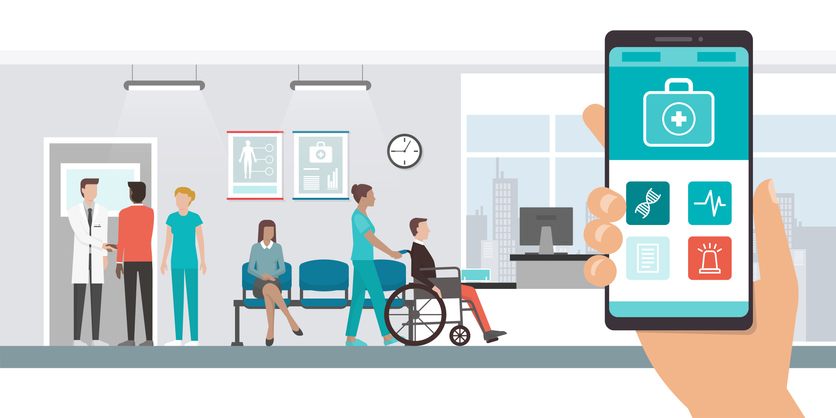Despite its early dominance among healthcare professionals, Apple’s iPad is being threatened for supremacy in the tablet computers market by a number of new tablets that run Google’s Android operating system.
Since the iPad’s release a year ago, doctors have flocked to the tablet to access electronic health record systems, monitor patients remotely and consult clinical reference materials. But the iPad’s continued success among healthcare professionals is “anything but guaranteed,” according to a new report available from MobiHealthNews.
The 42-page report, called “The Coming Medical Tablet War,” details the key players in the medical tablet market that are hoping to unseat the iPad, discusses the best uses of tablets in clinical settings and lists factors health workers should consider when shopping for a tablet.

With the Rise of AI, What IP Disputes in Healthcare Are Likely to Emerge?
Munck Wilson Mandala Partner Greg Howison shared his perspective on some of the legal ramifications around AI, IP, connected devices and the data they generate, in response to emailed questions.
The healthcare field represents a big opportunity — and big money — for tablet makers and application developers, as shown by the “staggering” early adoption of the iPad by physicians, the report says. About one-in-five doctors had already adopted the iPad before the device was even a year old, according to Chilmark Research. In just three years, Chilmark projects that virtually all physicians will use a tablet of some sort.
While the iPad is currently the clear leader in the category, controlling more than 90 percent of the tablet market, the device has some weaknesses related to healthcare that Apple’s competitors could exploit, according to the report. The iPad isn’t “ruggedized” to handle drops or abuse, and doesn’t come with several other features clinicians desire — a bar code scanner, RFID and smart card readers and a handle.
That said, the iPad still boasts plenty of advantages — chiefly its light, sleek package, affordability and a back catalog of tens of thousands of apps — that will make the device difficult, but not impossible, to unseat as the tablet of choice for health professionals, according to the report.
The biggest threats to the iPad come from Google’s Android operating system, Research In Motion’s BlackBerry PlayBook tablet and HP’s TouchPad tablet. Google’s Android, which has become the world’s most popular smartphone operating system in just three years, poses a particular threat to the iPad, largely due to the wide variety of big-name manufacturers whose devices run the system, such as Motorola, Sony Ericsson and Samsung.
Google’s strategy behind the Android operating system stands in stark contrast to Apple, which “controls all aspects of its ecosystem, from hardware design to the operating system to the approval of applications,” according to the report. Google, on the other hand, has made its operating system open source and freely available to all hardware manufacturers and exercises minimal control over applications that run on its platform.
Google recently released a version of Android specifically tailored to tablets, widely known as “Honeycomb,” and the results look very encouraging for healthcare users, according to the report.
“It seems that Google is daring its hardware partners to build extremely powerful tablets, and … its partners are rising to the occasion,” the report says. “This marriage of hardware and software could result in some pretty spectacular mobile health apps.”
Promising tablets built on the Android operating system include Motorola’s Xoom, Samsung’s Galaxy Tab 10.1, Dell’s Streak 7 and Cisco’s Cius.
The report ends on an optimistic note, arguing that regardless of which company wins the “tablet war,” the real winner will be mobile physicians. “Through the use of mobile health technologies, doctors will be more efficient, build closer relationships with patients, reduce errors and increase the quality of care,” the report concludes.














